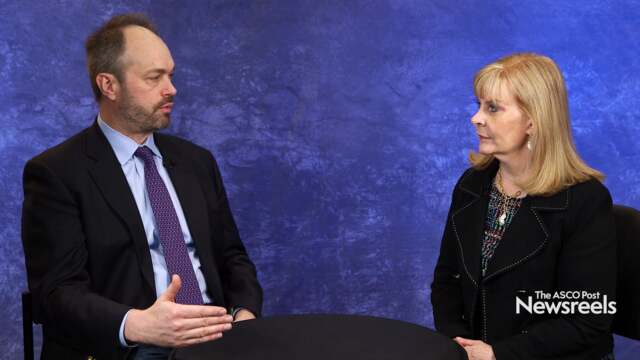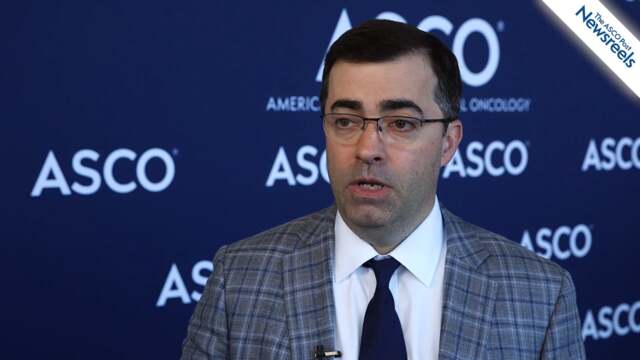Kathleen N. Moore, MD, on Ovarian Cancer: Results From the QUADRA Study
2018 ASCO Annual Meeting
Kathleen N. Moore, MD, of the University of Oklahoma Health Sciences Center, discusses phase II study findings on niraparib in patients with relapsed ovarian cancer who have received three or more prior chemotherapy regimens (Abstract 5514).
Sherry Shen, MD, of Columbia University Medical Center, discusses findings on the use of omega-3 fatty acid for obese breast cancer patients with aromatase inhibitor–related arthralgia (Abstract 10000).
Julie M. Vose, MD, MBA, of the University of Nebraska Medical Center, and William G. Wierda, MD, PhD, of The University of Texas MD Anderson Cancer Center, discuss phase II findings on ibrutinib plus venetoclax in first-line treatment of chronic lymphocytic leukemia (Abstract 7502).
David F. McDermott, MD, of Beth Israel Deaconess Medical Center, discusses study findings on pembrolizumab monotherapy as first-line therapy in advanced clear cell renal cell carcinoma (Abstract 4500).
Geertjan Van Tienhoven, MD, PhD, of the Dutch Pancreatic Cancer Group, discusses phase III study findings on preoperative chemoradiotherapy vs immediate surgery for resectable and borderline resectable pancreatic cancer (Abstract LBA4002).
Peter Schmid, MD, PhD, of Queen Mary University of London, discusses phase II study findings on AZD5363 plus paclitaxel vs placebo plus paclitaxel as first-line therapy for metastatic triple-negative breast cancer (Abstract 1007).





